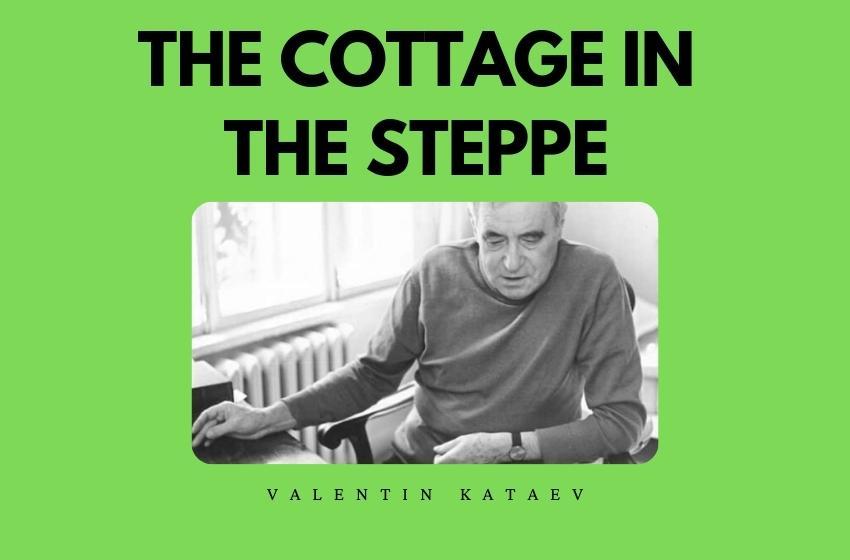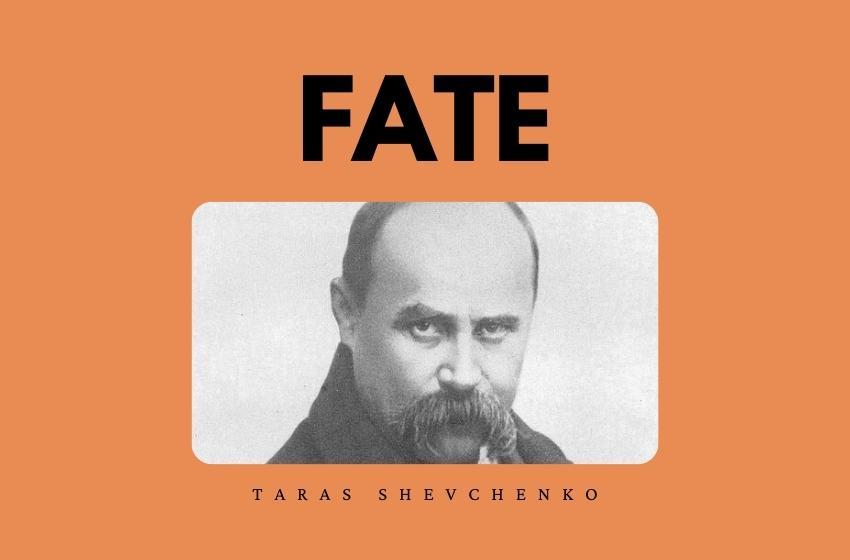A few days later exams began. It cost Motya and her mother a good deal of work to clean and mend Petya's uniform, for it had been in more than one adventure since its owner had come to live in Near Mills.
Petya's ear, which caught a glancing blow by the rubber truncheon, was no longer painful but was still blue and swollen, and in general presented a disreputable appearance. Petya hoped a dusting of tooth-powder would make it
look a little more presentable and allowed Motya to do the powdering, which she did, passing a rag very gently and carefully over the injured ear, her tongue thrust out in concentrated effort.
Petya did not do at all badly in his exams, although the examiners tried hard to fail him.
The tense, tiring examination period, which as always coincided with the first May thunderstorms, thickly flowering lilacs, summer heat and short sleepless nights filled with moonlight and the whispers of lovers, thoroughly exhausted Petya. When he finally returned to Near Mills from the last exam — eyes sparkling, hair rumpled, hands covered with ink and chalk, perspiring and happy—it would have been hard to recognize him for the same boy he had been a couple of months before, so much older and thinner he looked.
The next day he shouldered his pillow and blanket and set off for home. The first person he saw there was his father. Vasily Petrovich was weeding round the cherry trees, tearing out grass and chamomiles and tossing them into a basket. Petya looked at the kindly, unshaven face and the noticeably greyer hair, the dark-blue shirt, faded at the back and bleached almost white under the arms, the old trousers, baggy at the knees, the dusty sandals and the pince-nez that fell off and dangled on its cord every time his father bent down—and a flood of warmth filled him.
"Dad!" he called, "I'm through!"
His father turned and a happy smile lighted up the wet bearded face with a swollen vein running across the forehead.
"Ah, Petya! Well, congratulations, that's fine."
The boy dropped his pillow and blanket on the dusty grass and flung both arms round his father's hot, sunburned neck, noticing with surprise and a secret thrill of pride that they were almost the same height.
Auntie appeared from the flowering lilacs with the hoe in her hands. Petya did not recognize her at once, for she had a kerchief fastened tightly round her head, making her look like a peasant woman.
"Auntie, I've passed them all!" Petya cried.
"I know, I heard you, congratulations," said Auntie, wiping her wet forehead with her arm. She beamed, but she could not refrain from improving the occasion. "Now you're in the seventh form, I hope you'll behave better."
Dunyasha, her head in a kerchief and a hoe in her hands like Auntie, also congratulated the young master on his success.
Then came a creaking of wheels followed by a big, bony, very old horse in funereal black blinkers pulling a long water-cart. The horse was led by the lanky youth, Gavrila, whom Petya had seen before, and Pavlik sat astride the barrel, barefoot and in a big straw hat, holding the reins and whip.
"Hey, Petya! Hullo!" he called, spitting to one side like a real carter. "Look, I can drive him a bit already! Here you, stop! Whoa!" he shouted at the horse, which at once stood motionless on its trembling legs, evidently glad to do so.
Gavrila set to work watering the trees, pouring a bucketful into the hollow dug round each. The dry earth absorbed the water instantaneously. In a few minutes Petya realized the work entailed in looking after an orchard. Summer was beginning and there had not been a single really good rainfall. In the cistern the water was right down to the bottom. Now it had to be brought from the horse-tram terminus.
The orchard was in blossom and the trees were covered ,with ovaries that needed moisture all the time. It was a good thing that with the Vasyutinskaya orchard they had got that old horse, called Warden, and the water-cart. But a tremendous amount of water was needed, and Warden could barely crawl.
From morning to night there was the creaking of un-greased wheels from the water-cart, the crack of the whip .and the heavy breathing of the bony black nag that looked ready to fall down and give up the ghost at any moment. It was hard to make him rise from his wet straw in the morning. He trembled all over, weakly shifting his great cracked hoofs, and the flies crawled round his blind, watering eyes.
This somewhat dashed their spirits, and at times seemed like a bad omen. But the weather was wonderful and the crop promised to be so rich that the Bachei family, busy from morning to night with their unaccustomed but enjoyable physical work, felt splendid.
At first Petya thought he never would learn to dig round the trees. The heavy spade twisted awkwardly in his hands and seemed too blunt to cut deeply into the ground with its thick growth of grass and chamomiles. His hands smarted and he rubbed blisters on the palms. But by the time they had burst and turned into calluses, he began to understand the way of it.
It seemed that the spade should be put down at an angle, and he should press not only with his hands but also, and mainly, with his foot—slowly and evenly; there was a crack of tearing roots and the spade went down into the black soil
right to the very top. Then came the blissful moment when he bore down with all his weight on the handle, felt it bend a little, and with a pleasant effort turned over the heavy layer of soil with its imprint of the spade and half a wriggling red worm.
At first Petya worked in sandals, but then began digging barefoot to save them, and the contact of his skin with the warm iron was another thing he enjoyed. He ^realized that this was not play, it was work, the future of the family
depended on it.
All of them worked in the sweat of their brows, it was a real struggle for existence. They had dinner at midday on the big glassed-in veranda, hot from the sunshine. They ate borshch, boiled beef, and grey wheaten bread which they
bought from the German settlers at> Lustdorf. They were so tired they ate almost in silence, and what talk there was concerned only the weather, rain and the crop.
Although they were living in a summer cottage they were quite unlike the usual holiday crowd. They slept on folding beds in the big, comfortless rooms, with spades, hoes, buckets, watering-cans and other implements lying about in
the corners. They washed at dawn by the water-cart, and although the sea was not far away, only about a mile and a half, they seldom went bathing— there was no time.
Vasily Petrovich became thin and haggard; he was evidently overtaxing his strength but he refused to slacken off, and worked so hard that Petya often worried about him.
Everything appeared to be going well. It was the kind of life Vasily Petrovich had often dreamed of in secret, especially after his European tour—with something of Switzerland, something of the Rousseau spirit, a life independent of the government or society. A little plot of land, an orchard, a vineyard, healthy physical toil and leisure devoted to reading, walking, philosophical conversation and all the rest of it.
So far, it is true, there had been only the healthy physical toil, no time was left for the leisure devoted to spiritual joys. But after all, that was natural, the new life was only just beginning.
Nevertheless, Vasily Petrovich was never free from a nagging sense of worry. He was uneasy about the crop.
The ovaries stood thick on the cherry trees, fine, green balls that swelled day by day, but who could say how they would go on? Suppose there was no rain, the water carried proved insufficient and the crop was lost? And even if it was
not lost, how were they to sell it?
Up to now the question of selling the crop had never been properly discussed, it had been somehow taken for granted. People would come, wholesale dealers from the market, and buy up the whole of it. All right. But what if they didn't come and didn't buy it?
Meanwhile, the date for the second payment on the note of hand was drawing near, and two postcards had come from abroad, with a reminder from the old woman and a warning that if the payment was not made punctually she would at
once protest the bill, close the agreement and let the farm to other tenants. This took all peace of mind from Vasily Petrovich and he began to lose his temper about trifles.
Auntie remained cheerful, she made various plans and fastened a sheet of paper to a telegraph post by the horse-tram terminus announcing a comfortable cottage of two completely isolated rooms to let in a delightful spot on the steppe
not far from the sea, with an orchard and vineyard; it could be rented either for the season or by the month. Full service if required.
These two separate rooms were nothing more nor less than the tiny neglected hut roofed with shingles where Madame Vasyutinskaya's servants had once lived. It stood by itself, its windows facing the steppe, amid a thick growth of silvery wormwood; to Petya, who had explored the whole place, it was a wonderful, mysterious, and very romantic spot.
However, people who read the notice and came to take a look were not impressed. One and all said the same thing, "You call it 'not far from the sea'?" Gavrik came a number of times to study Latin. He liked the farm, but he still had no use for all this business of physical toil and the sweat-of-your-brow, he looked upon it as an eccentric whim. He did not say so straight out, however. On the contrary, he asked very seriously about watering, hoeing, crop prospects and the wholesale price of cherries. He gave no advice, only shook his head in concern and sighed so sympathetically that Petya even began to have qualms about the success of their venture.
Gavrik said little about his work in the print-shop and life in Near Mills, he seemed reluctant to discuss it, but from the little he did say Petya concluded that things were not going very smoothly. After the big May Day demonstration which he had hardly noticed in his absorption in exams, the police had got busy again, there had been house searches and some people had been arrested; the police had been to the Chernoivanenkos', too, but had found nothing and Terenty
was not arrested.
"In general, it's hard to work," said Gavrik, and Petya was in no doubt about the sense in which he used the word "work."
On one of his visits, as though continuing that topic, Gavrik said suddenly,
"About renting out that cottage of yours—it's not such a bad idea."
"Yes, but nobody wants it," said Petya.
"If you look properly you may find someone," Gavrik answered, as though he had thought it all over. "There are people for whom a place like that would be just the very thing. Not everyone likes to take a room in town, where you have to
hand in your papers for registration the moment you move in. Get me?" he ended sternly, looking very straight at Petya.
"I get you all right," Petya answered with a shrug.
"Well then, remember," said Gavrik still more sternly. "The point is," he went on more gently, almost casually, "I know a widow with a child, an assistant doctor, she's from another town and she wants a room where it's quiet. Of course, we could fix her up in our shed, but in Near Mills conditions aren't all we want—you understand? Such a watch kept, it's no use trying. The widow's got all her. papers in order, you've no need to worry about that."
"I understand," said Petya.
"Well, I needn't explain any more, then. Terenty told me to sound you out about it. I've never seen her myself. But I'm sure she'll be all right with you. A quiet place, like a farm really, neither town nor village, and plenty of summer cottages all round. Who'll ever notice her? Couldn't find anything better. Now the next question— what's the rent?"
"I believe it's seventy rubles for the season."
"Eh, lad, that's opening your mouth a bit too wide! You'll get nothing that way. Fifteen rubles a month's a good fair price. She can pay two months in advance. But what's the sense of talking to you about it? I'll go to your aunt."
Gavrik did talk to Auntie and soon convinced her that it would be better to have a real, concrete thirty rubles—which weren't to be picked up on the ground— rather than an imaginary seventy. As for the widow and her child, Gavrik said nothing about her but made it clear that he had specially sought out a suitable tenant for them and was thus doing the Bachei family a very good turn—although he made no actual promises.
The rain did not come. The drought continued and the heat was suffocating.
1956
Translated by Fainna Solasko and Eve Manning





















